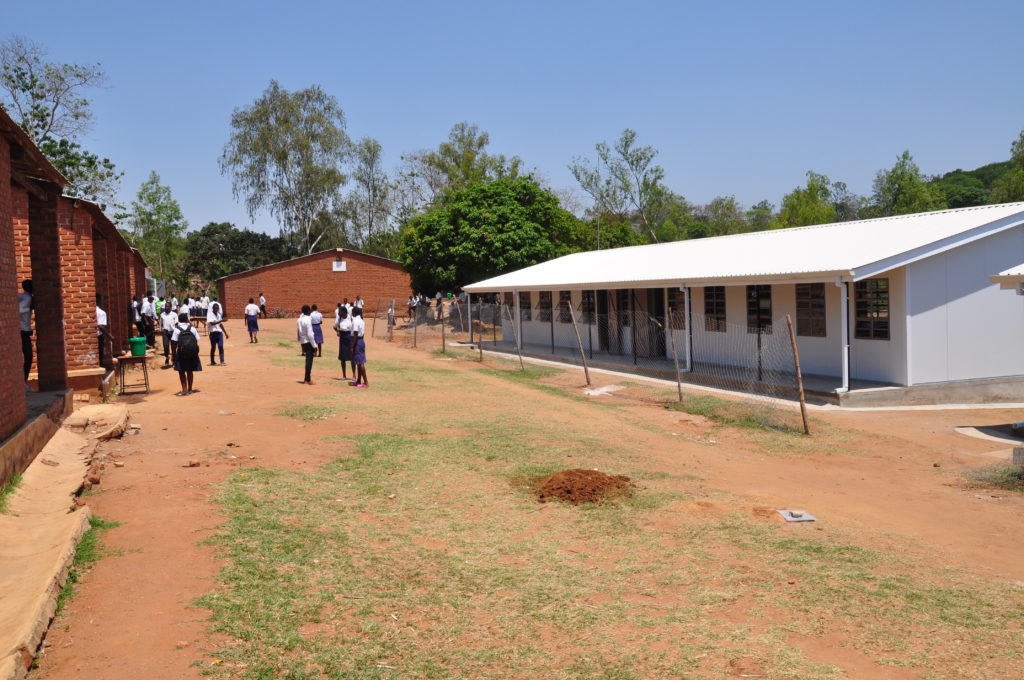
In 2018, UNICEF reported that for every year spent in school, an individual’s personal earnings increase by roughly 10 percent. This suggests nearly 420 million people worldwide could be lifted out of poverty if all adults completed secondary education. However, challenges with access to education persist in developing countries, and Malawi is no outlier. In 2020, the Government of Malawi reported that at least 105,000 eligible students were denied entry to secondary school simply because there was no space.
According to Dr. Olivia Scott Kamkwamba from the University of North Carolina at Chapel Hill, “to create enough physical classrooms to serve just thirty percent of the eligible secondary school population would require building 805 schools at an estimated cost of $237 million—nearly two thirds of the entire Malawian education budget—without any provisions for teachers, staff, maintenance, or repair of dilapidated buildings.”
Navigating congested classrooms can create an unsafe environment for girls in which harassment goes unnoticed. Many girls in Malawi are marginalized further because of their gender. Clean and private bathroom facilities are rarely available and without these, girls will skip school when they are menstruating to spare embarrassment. Poor sanitation, space limitations and inadequate provision for personal hygiene at schools, paired with societal norms and expectations, cause girls to abandon school far too prematurely. In result, girls are left uneducated which often leads to early pregnancy, marriage, and/or new HIV infection.
To address these significant constraints to girls’ education, the U.S. Agency for International Development (USAID) is partnering with the Government of Malawi to build more schools and deliver education more equitably through the five-year Secondary Education Expansion for Development (SEED) project. The partnership will yield up to 200 new secondary schools, eliminate tuition fees, and allow the government to hire 10,000 more trained teachers.
Challenges with access to education persist in developing countries, and Malawi is no outlier. Poor sanitation, space limitations and inadequate provision for personal hygiene at schools, paired with societal norms and expectations, cause many girls in Malawi to abandon school far too prematurely.

These new schools include more than just classrooms. They will have separate latrines for boys, girls, and teachers, and the lady teachers’ and girls’ latrines are provided with a changing room as well. The goal is to incentivize young girls with clean and private sanitation facilities, so they stay in school longer and adopt healthy behaviors by doing so.
“The SEED Project is designing an improved learning space for remote rural schools that do not have electricity or running water,” said Tetra Tech’s Matt Harder, SEED Project Chief of Party. “We are focusing on using local materials, creating facilities that are easy to maintain, and establishing a safe space where students can excel.”
Thirty existing urban schools have already been expanded under the initial SEED Urban phase of the project including the provision of girls’ changing rooms. In 2021, the SEED Project will start building the first group of 38 rural secondary schools.
New schools built by the USAID SEED Project include more than just classrooms. They will have separate latrines for boys, girls, and teachers, with the goal to incentivize young girls with clean and private sanitation facilities, so they stay in school longer and adopt healthy behaviors by doing so.

The goal being to reduce early pregnancy and marriage and new HIV infections by reducing the burden of steep drop out rates, young women will now have the opportunity to redefine their roles in society and improve the socioeconomic status for women overall. By welcoming women into the conversation, Malawi can theoretically double the number of active contributors to the economy and slow premature population growth simultaneously.
Building safe and suitable schools and making quality education accessible will accelerate the Malawian economy. Through the USAID SEED project, nearly 20 percent more students can stay in school. By educating young women and youth, literacy rates will improve, disease burden will reduce, and students will pave the way for a stronger, more equitable Malawi.